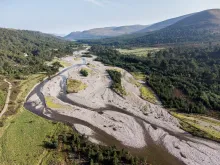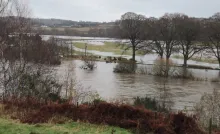Water Scarcity in Scotland: Future Impact for Distilleries and Agriculture
A recent CREW project led by The James Hutton Institute, in collaboration with Scotland’s Rural College, the University of Aberdeen, and the British Geological Survey, highlighted a pressing issue for Scotland: the increasing likelihood and duration of water scarcity events due to climate change. This project, focused on the impact of these changes on three critical sectors—crop production, livestock farming, and distilleries.



